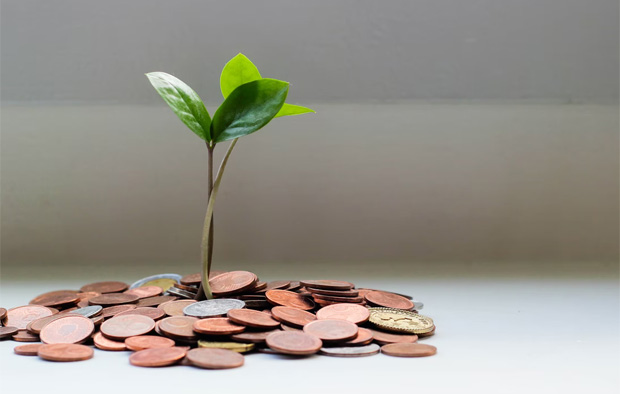How To Financially Prepare for a Baby

How To Financially Prepare for a Baby
The miracle of a baby on the way is nothing short of exciting for future parents across the world. Holding your bundle of joy for the first time is a feeling like no other. But have you considered how much your finances could take a hit?
Once your baby is born, your priorities change. We are not just talking nappies, prams and a cot, but a child. Depending on your means, you should aim to be in a financial position which works best to give them a bright future.
On average, raising a baby in the first year could set you back as much as £6,000, or £500 a month. From birth until age 18, your child could cost a total of £152,747 for couples or £185,413 for single parents.
If you are looking forward to welcoming a new addition to your family, we have some tips to guide you through financially planning for your new baby.

- Know your maternity or paternity from your employer
As a soon-to-be parent, the main financial support you can receive is maternity or paternity pay from your employer. Each policy is different depending on the company you work for. Your entitlement could even be dependent on your years of service. If in doubt, read the policy and speak to your Human Resources department.
- Apply for Child Benefit
Child Benefit is another scheme which can support you with the cost of having children. You will need to apply for this as soon as your baby has been born. Child Benefit is paid monthly, which can be a great added extra to help with your outgoings. You will receive this until your child finishes full-time education. However, this is a means tested benefit and will vary dependent on your household income.
- Build up your savings
Setting money aside is hugely important if you are financially preparing for a child. If your maternity or paternity pay is less substantial, a baby savings pot could make up the difference. In general, getting into the habit of saving little by little on a regular basis can reduce any future worry and stress. If you are currently baby planning, think about saving early on before conception, if not as early as you can if there is a baby on the way.

- Cut down your debt
A big commitment with the introduction of a baby means clearing any debt is even more crucial. Especially if you are likely to be dependent on one income for up to a year, reducing unnecessary payments will be a big help. This spare cash can be used towards looking after your child.
- Prepare early by living on one income
When your baby arrives, you will likely be dependent on one income and this can last for up to one year. Prepare early for this situation, so you and your partner stay in control of your finances to look after your family. Living on one income, however, could increase your chance of more Child Benefit.
- Update your life insurance policy
The exciting milestone of having a child means it is crucial to update your life insurance to reflect this. We do not want to think about the unexpected, but this is why you should make sure you are fully covered to look out for your loved ones. Becoming a parent means you will now be responsible for someone else.

- Update or write your will
Life insurance is one aspect, writing a will with your child in mind is another. If the worst were to happen to you or your partner, you would need to think about the support your child would be provided with. This financial preparation means you have your child’s future in mind if anything happens.
- Set up a savings plan for your child
You and your partner will likely have savings, but what about for your newborn? Setting up a savings account for your child can give them a brighter future. Junior ISAs are a popular, tax-efficient children’s savings account to build up a lump sum. You can open a Cash Junior ISA, Stocks and Shares Junior ISA, or both. Money can be accessed by your child on their 18th birthday and be used towards something special. This could be a first home, university costs, and more.

- Plan and budget what you will need for your baby
Shopping for a baby means we could all get carried away with buying every cute baby grow, baby toy and piece of nursery décor we encounter – that’s why budgeting is key! It’s important to have enough baby equipment ready for your little one, but don’t go overboard. Create a dedicated baby budget and follow it.
- Consider selling items for additional space and money
Starting a family means you will need to have enough space in your home. Start by thinking about items you no longer need that are taking up space and sell these to generate some money. Offloading these goods can give you the essential space to plan for the arrival of your baby. Once your baby starts growing up, you can then sell items you no longer need.
Purchasing or replacing a car is also a common investment for soon-to-be parents, so you may need to think about a bigger car with your baby in mind.
Welcoming children is an exciting milestone, but it is a costly commitment. However, the sleepless nights will be less stressful knowing you and your partner have financially prepared in the best possible way for their future.
Guest Article.
Sources:
- https://www.lv.com/life-insurance/first-12-months-parenting-costs
- https://www.thetimes.co.uk/money-mentor/article/starting-family-baby-costs/
- https://cpag.org.uk/sites/default/files/files/policypost/CostofaChild2020_web.pdf
- https://www.gov.uk/child-benefit
- https://www.gov.uk/child-benefit-16-19
- https://cpag.org.uk/sites/default/files/files/policypost/CostofaChild2020_web.pdf




